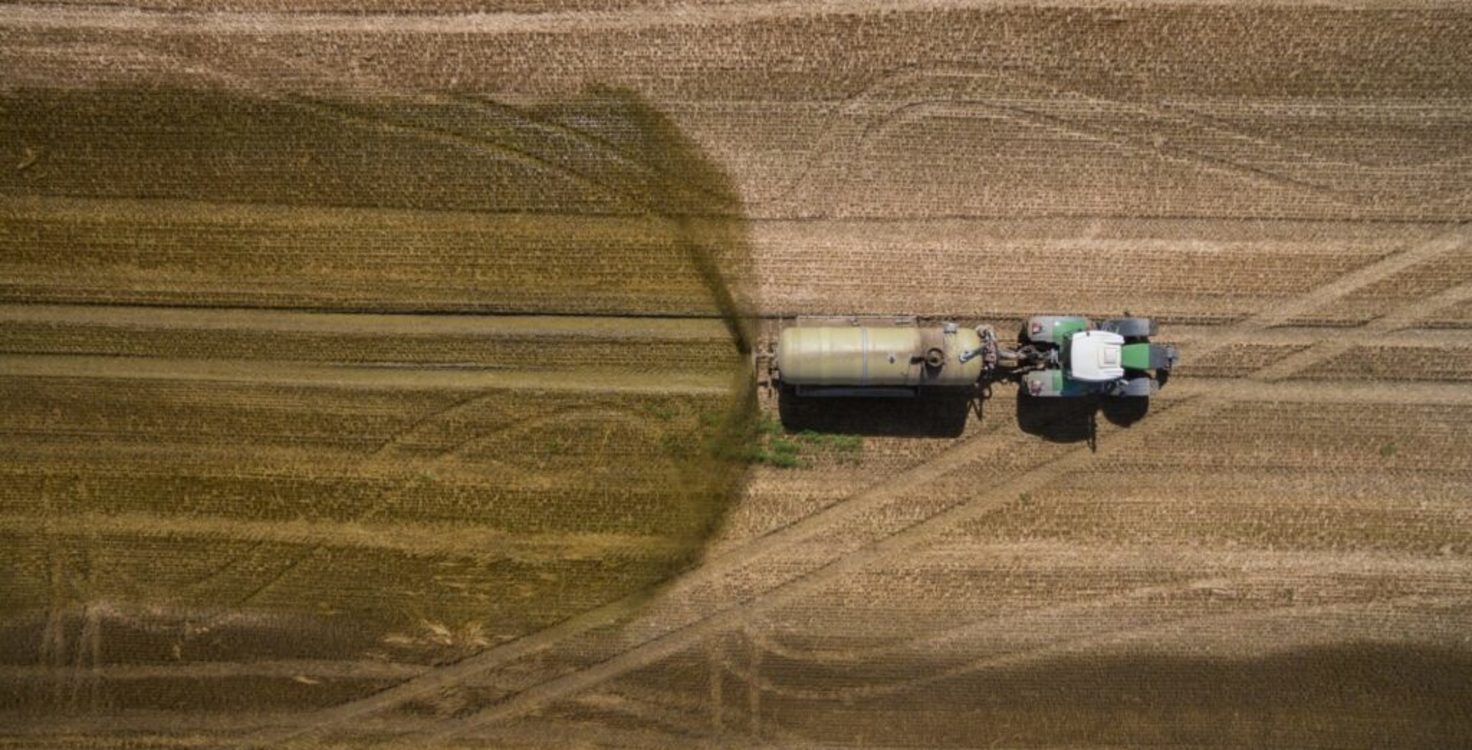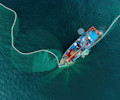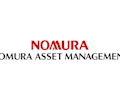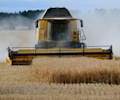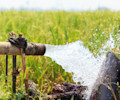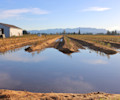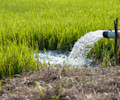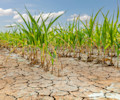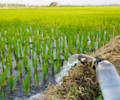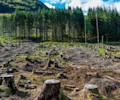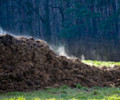FAIRR, an influential investor network, has launched an engagement with 10 leading animal agriculture firms to tackle pollution from animal waste, with an initial $8tn of investor backing
Waste dwarfs plastics: Over three billion tonnes of waste1 are produced from animal farms each year, more than the volume of plastic produced worldwide.
Wasted opportunity: Investors call on firms to turn nutrients from animal waste into valuable resources such as fertiliser.
Mounting regulation: Animal agriculture firms face increasing regulatory and financial risk from mismanagement of waste water discharge and manure.
(London, 21 September 2022): The $68 trillion-backed FAIRR Initiative has launched a world-first investor engagement addressing the biodiversity impacts of waste mismanagement and nutrient pollution from intensive livestock production. This is the first in a series of FAIRR engagements targeting biodiversity, which creates $44 trillion of economic value — or 50% of global GDP — annually, making it critical to the economy.
Investors representing over $8tn in AUM2, including Robeco and Aviva Investors, will engage ten intensive pork and chicken producers including **JBS (**Brazil), Tyson Foods (US), BRF (Brazil), Cranswick (UK), Maple Leaf (Canada) and WH Group (China) – owners of Smithfield Foods in the US3.
The investors are asking each company to disclose a full assessment of how manure is managed in their supply chains and which concrete actions they are taking to manage the associated risks such as nutrient pollution.
Manure represents a precious store of nitrogen and phosphorus fertiliser. Yet, due to complexities surrounding its distribution, it is routinely treated as a waste product to be disposed of inexpensively rather than as a valuable fertiliser. It is rarely transported more than a few kilometres to be spread on crops4, thus failing to spread to regions where there isn’t as much livestock.
Investors will, therefore, also engage with two agrochemical companies (Darling Ingredients and Yara International) to explore the potential use of animal waste as a circular source of raw ingredients, for example by isolating, enhancing, and reusing elements such as nitrogen and phosphorus to produce value-added fertiliser. Fertiliser prices have hit record highs since the start of the war in Ukraine, emphasising the need for better circular use of animal waste. Already, the EU is seeking to accelerate the development of alternative products to reduce its dependence on Russian products and gas.
The engagement is informed by a new report, published today, which states that over three billion tonnes of waste are produced from animal farms each year, more than the volume of plastic produced worldwide. The report also highlights previous findings from FAIRR that show the volume of faeces produced by animal agriculture per year is equivalent to the faecal waste produced by twice the entire global human population5. Many cases of inadequate management of animal manure lead to nutrient pollution that harms waterways, air quality and biodiversity, resulting in sizeable lawsuits and several examples of community opposition to farm expansion6.
FAIRR’s investor members are keenly aware of growing biodiversity risks and their implications, particularly in the run up to the UN Biodiversity Conference (COP 15) this December. Increasing regulation to tackle waste and pollution from animal agriculture is being seen across the globe, including in the Netherlands, China and USA7 displacing supply chains and often pushing companies to increase their capital investments.
Jeremy Coller, Chair and Founder of the FAIRR Initiative, and Chief Investment Officer of Coller Capital, said:
“The meat industry’s failure to manage manure effectively is threatening both biodiversity and the bottom line for investors. Unbelievably, more waste is produced by animal farms each year, than the volume of plastic produced worldwide. The practice of dumping excessive amounts of manure and allowing nutrients to pollute waterways is killing off marine life and endangering public health.
“Investors are well aware of the regulatory risk for companies, having seen initial steps taken in the US and Netherlands. Moreover, companies are missing an opportunity to be part of a global solution by creating valuable fertilizer from waste, at a time when it has never been more expensive to procure.”
Peter van der Werf, Senior Manager Engagement, Robeco, said:
“Robeco is committed to protecting and restoring biodiversity through its financial activities and investments. As a key driver of biodiversity loss globally, waste and pollution from intensive livestock production must be addressed – and this first-of-its-kind engagement is an important step forward.
“Around one quarter of our assets under management are either highly or very highly dependent on at least one ecosystem service – services reliant on healthy ecosystems. Protecting biodiversity is in the long-term interests of our clients and our investment performance, not to mention the planet.”
Eugenie Mathieu, Senior ESG Analyst & Earth Pillar Lead at Aviva Investors:
“Investors must be committed to protecting and enhancing the planet’s biodiversity, beginning with understanding the risks of inaction. Over half of global GDP is dependent on the ecosystem services that biodiversity provides, making mounting damage to ecosystems from the mismanagement of animal waste hard to swallow. We urgently need a collective effort from the animal protein supply chain to reduce the impact of its waste, and to build resilience against looming regulation. We urge companies to grab the bull by the horns to prevent the breakdown of global biodiversity, which would have profound economic effects on the world we live in.”
Max Boucher, Senior Manager, Research and Engagement, the FAIRR Initiative., said:
“This investor engagement shows it’s not enough to look at climate in isolation. The animal agriculture industry needs to assess risks and opportunities through a lens of nature neutrality and eventually positivity – in this case managing nutrient pollution in addition to methane emissions. Investors will become increasingly demanding in this regard as initiatives like the TNFD gain traction and a global agreement on biodiversity becomes more likely.”
Notes to the Editor
1 Animal waste is commonly considered to be the excreted materials from live animals (manure). It may also include straw, hay, wood shavings and other sources of organic debris under certain production conditions.
2 The engagement closes to new investors on 21 October
3 The companies targeted by the engagement are: Maple Leaf Foods (Canada), Tyson Foods (US), Seaboard Foods (US), Hormel Foods (US), Muyuan Foods (China), WH Group (China), Charoen Pokphand (Thailand), BRF (Brazil), JBS (Brazil), Cranswick (UK), Darling Ingredients (US) and Yara (Norway).
4 Lorey, J, and Massey R: Using Manure as a Fertiliser for Crop Production, 2015
5 Coller FAIRR Protein Producer Index, Spotlight 1: How Animal Waste Mismanagement Drives Biodiversity Loss and Accelerates Climate Risk
6 Community impacts and opposition:
Gilbert, P: From Hogs to HABs: Impacts of Industrial Farming in the US on Nitrogen and Phosphorus and Greenhouse Gas Pollution, 2020.
Cornerstone Barristers: “Environmental impact of intensive farming – when the manure hits the fan”, 28 May 2019;
Socially Responsible Agriculture Project: “Christmas comes early for Mason County, Illinois, residents after funding pulled for proposed hog CAFO”, 24 December 2021.
Lawsuits:
See Socially Responsible Agriculture Project: “Smithfield rap sheet exposes decades of factory farm pollution in Missouri”, 1 April 2022.
See, for example, North Carolina Health News: “Neighbours win first hog farm case”, 27 April 2018; and AP News: “Court upholds hog verdict; Smithfield announces settlement”, 20 November 2020.
7 In late 2021, the Netherlands government announced a €25 billion plan to proactively buy out farmers to reduce the country’s nitrogen levels. The EU is acting on its 1991 Nitrates Directive, requiring member states to monitor their waters and identify the effects of pollution from agriculture. California has set a target to reduce methane emissions in dairy and cattle by 40% by 2030. More states may follow after the COP26 pledge of a 30% reduction in global emissions of the gas by 2030 and the associated White House Action Plan.
FAIRR’s Biodiversity series
This engagement is the first in a three-pronged engagement series: ‘Protein Producers and Pathways to Biodiversity Loss’.
The engagement is accompanied by a report outlining the issue: ‘Creating a Stink: How Manure Drives Pollution and Biodiversity Risk for Animal Protein Producers’. This report can be found online here.
Additionally, the first report in the series ‘Biodiversity and Nature Risks: Implications for Investors and Policy’ sets out a top-level view on the biodiversity risks that are driven by the food system, including animal agriculture and the implications that these have both for investors and policy. This report can be found online here.
The latest report Protein producers and pathways to biodiversity loss: Waste and pollution is available online here.
Media contacts
For more information, including interviews and comment, please contact:
Mike Marshall, ESG Communications
t: + 44 (0)7728 816 426 | e: mikem@esgcomms.com
About FAIRR
The FAIRR Initiative is a collaborative investor network, founded by Jeremy Coller, with a membership of $68 trillion assets under management. FAIRR works with institutional investors to define the material ESG issues linked to intensive livestock and fish farming systems and provide them with the tools necessary to integrate this information into their asset stewardship and investment decisions. This includes the Coller FAIRR Protein Producer Index, the world’s first comprehensive assessment of the largest global animal protein companies on environmental, social and governance issues. Visit www.fairr.org and follow @FAIRRInitiative
